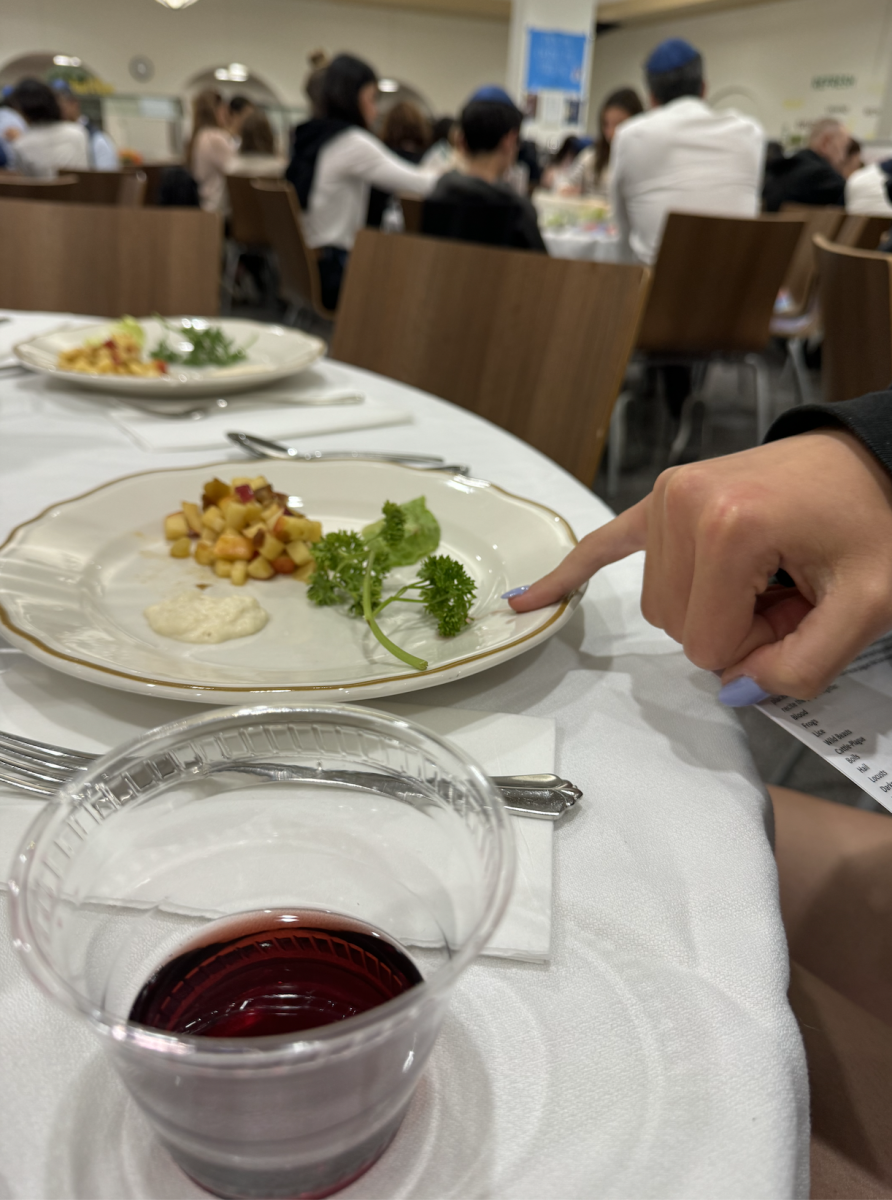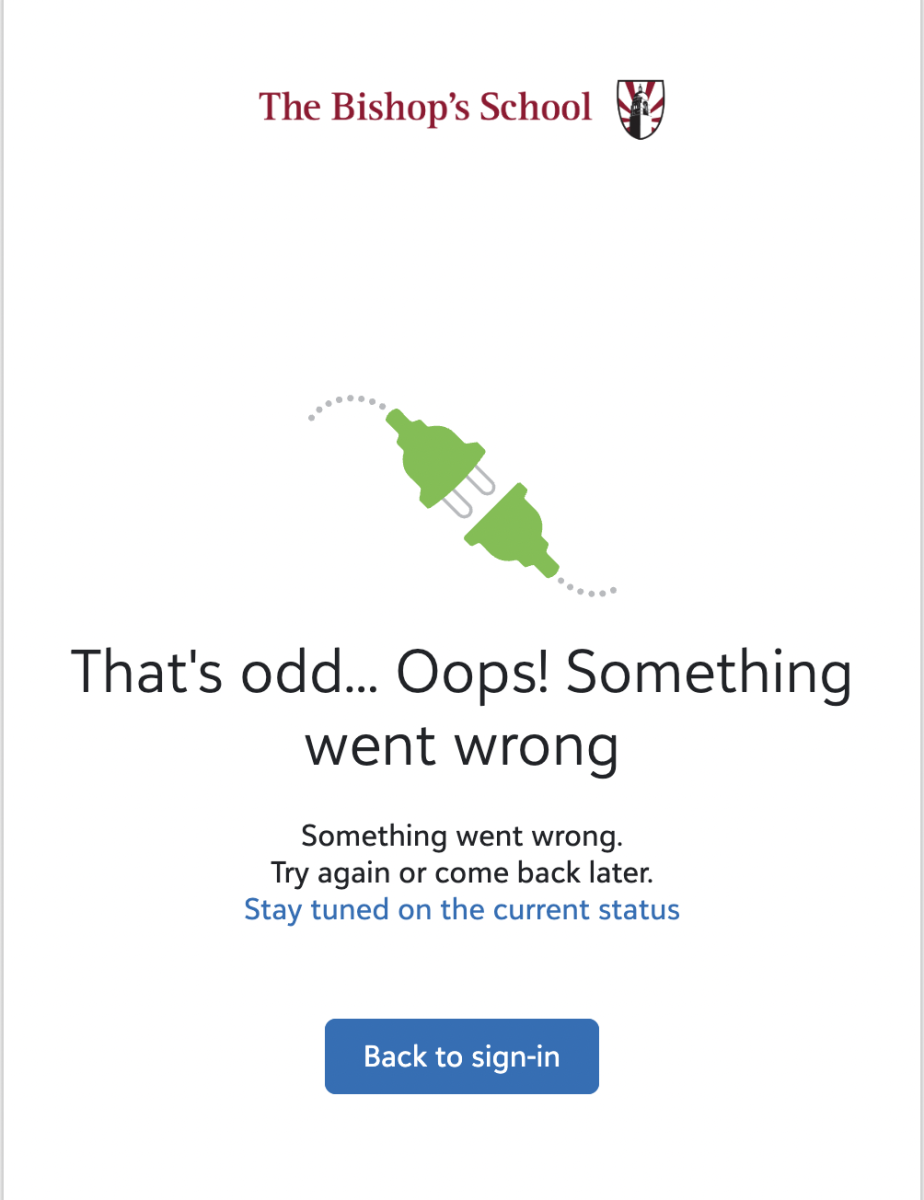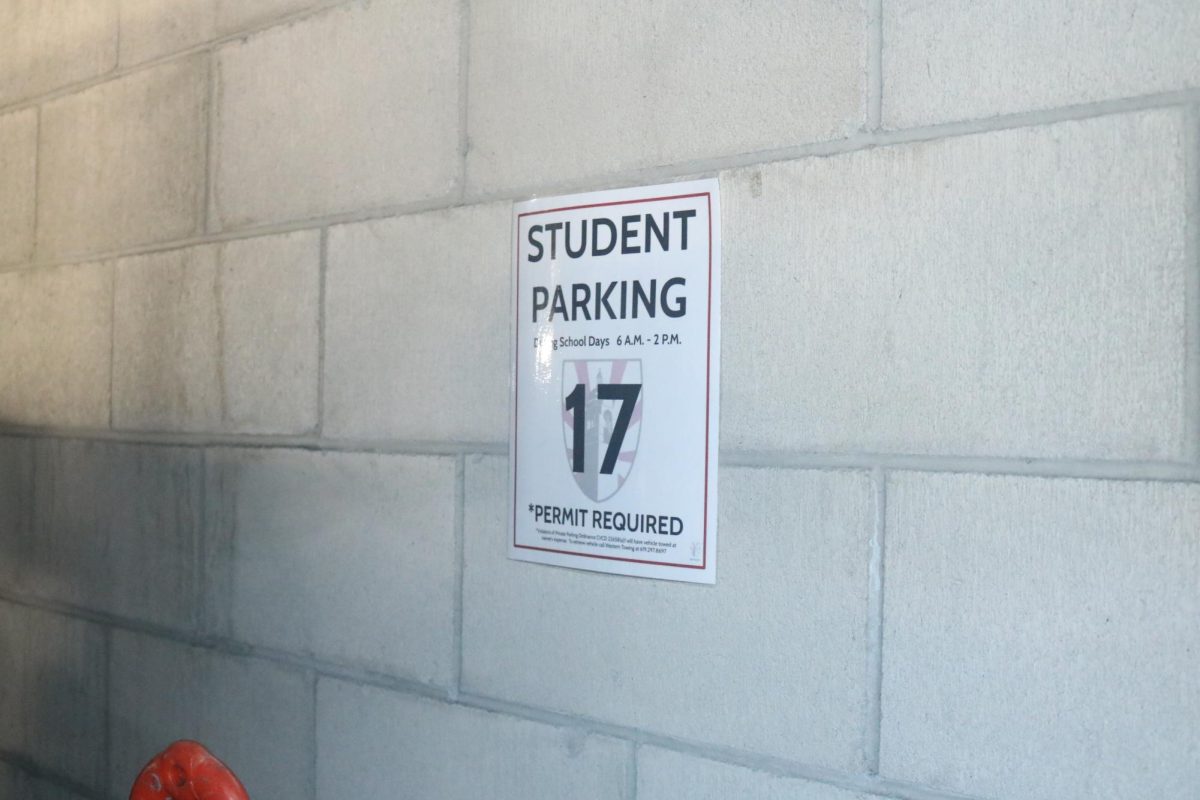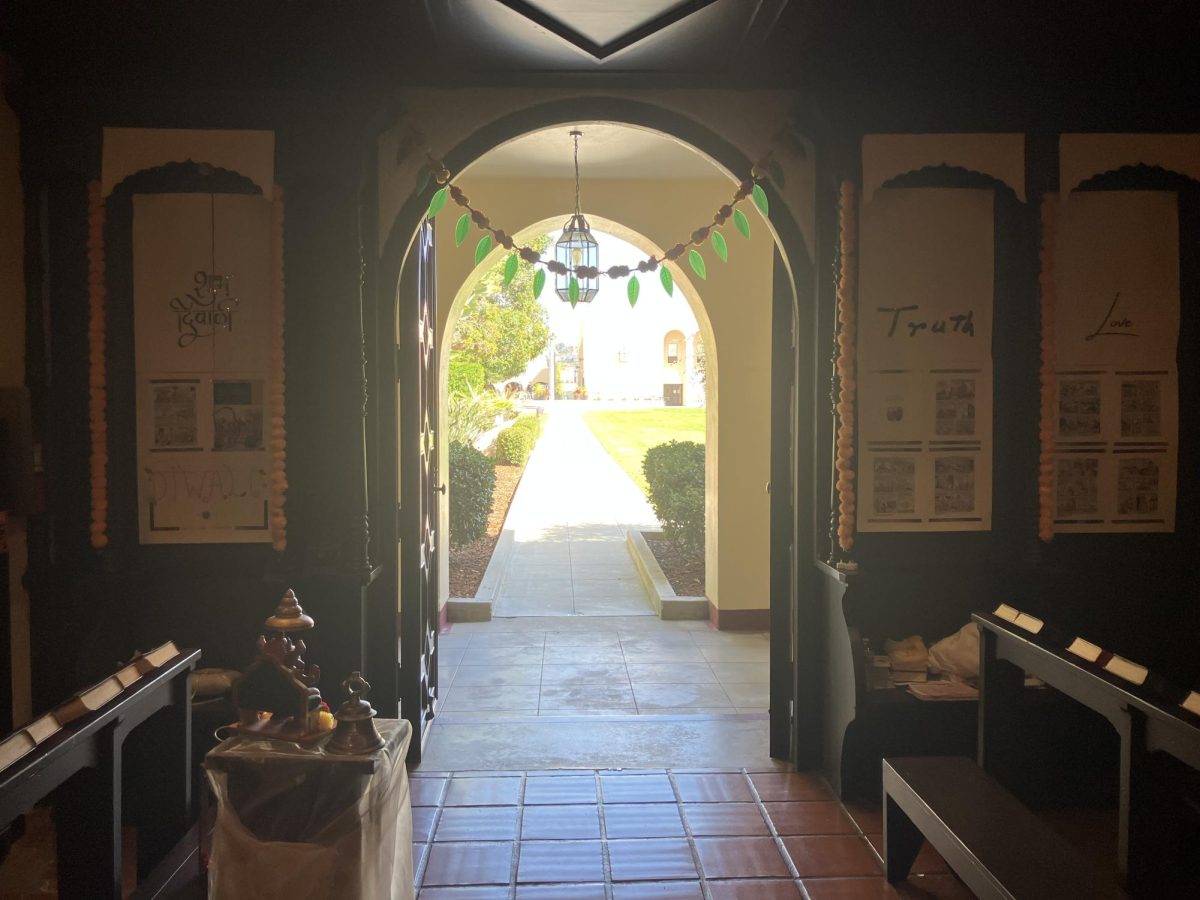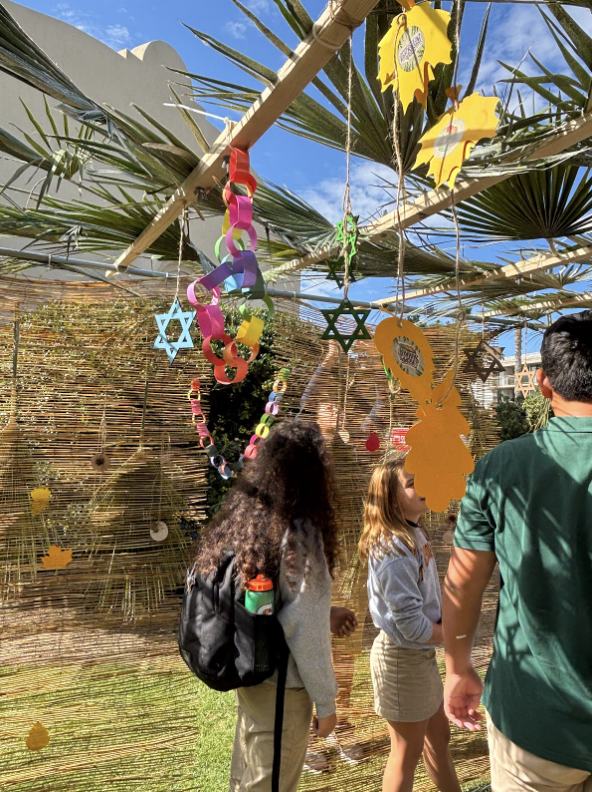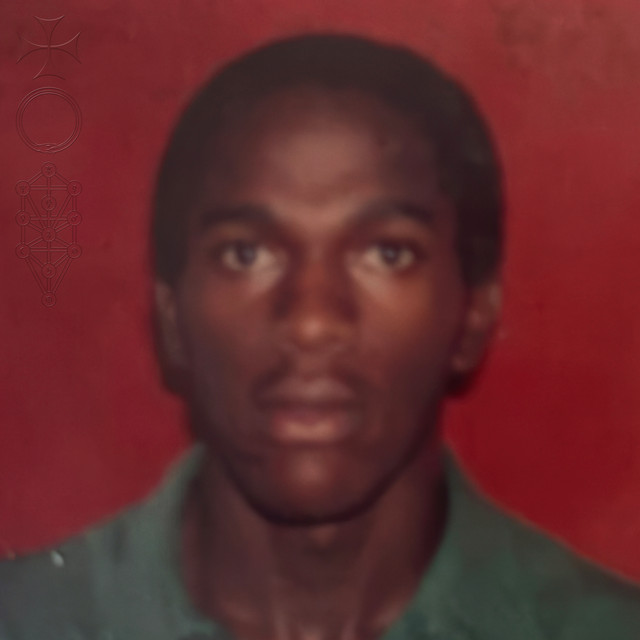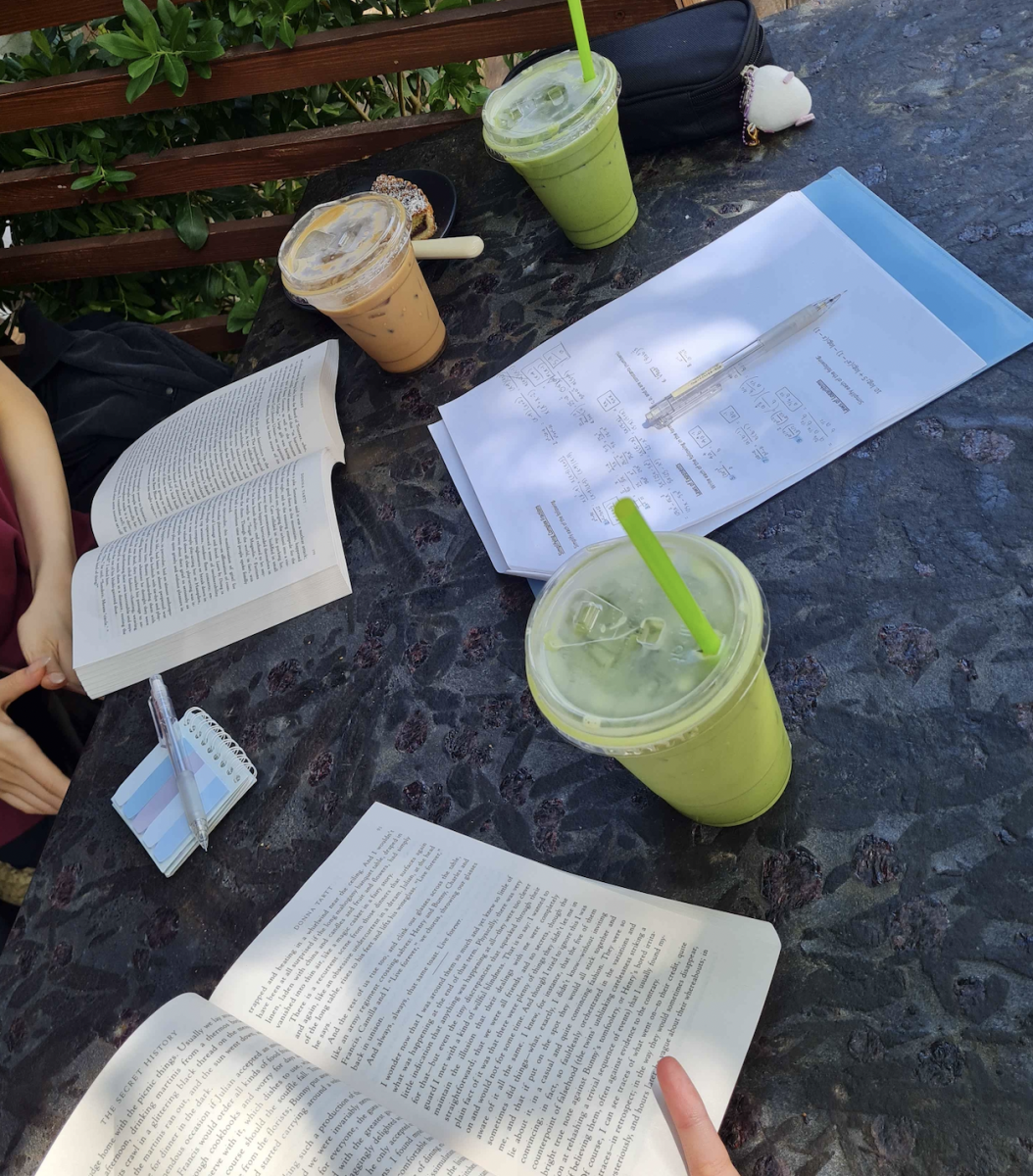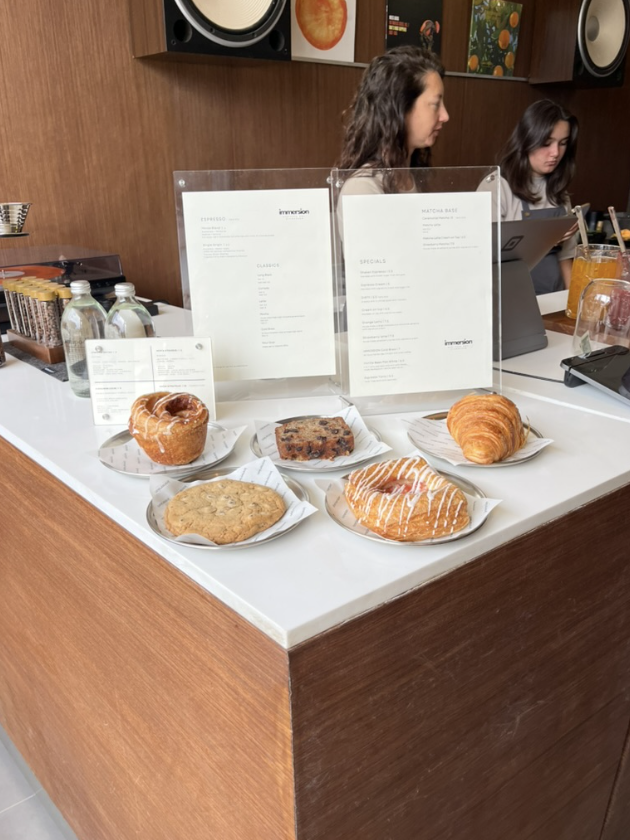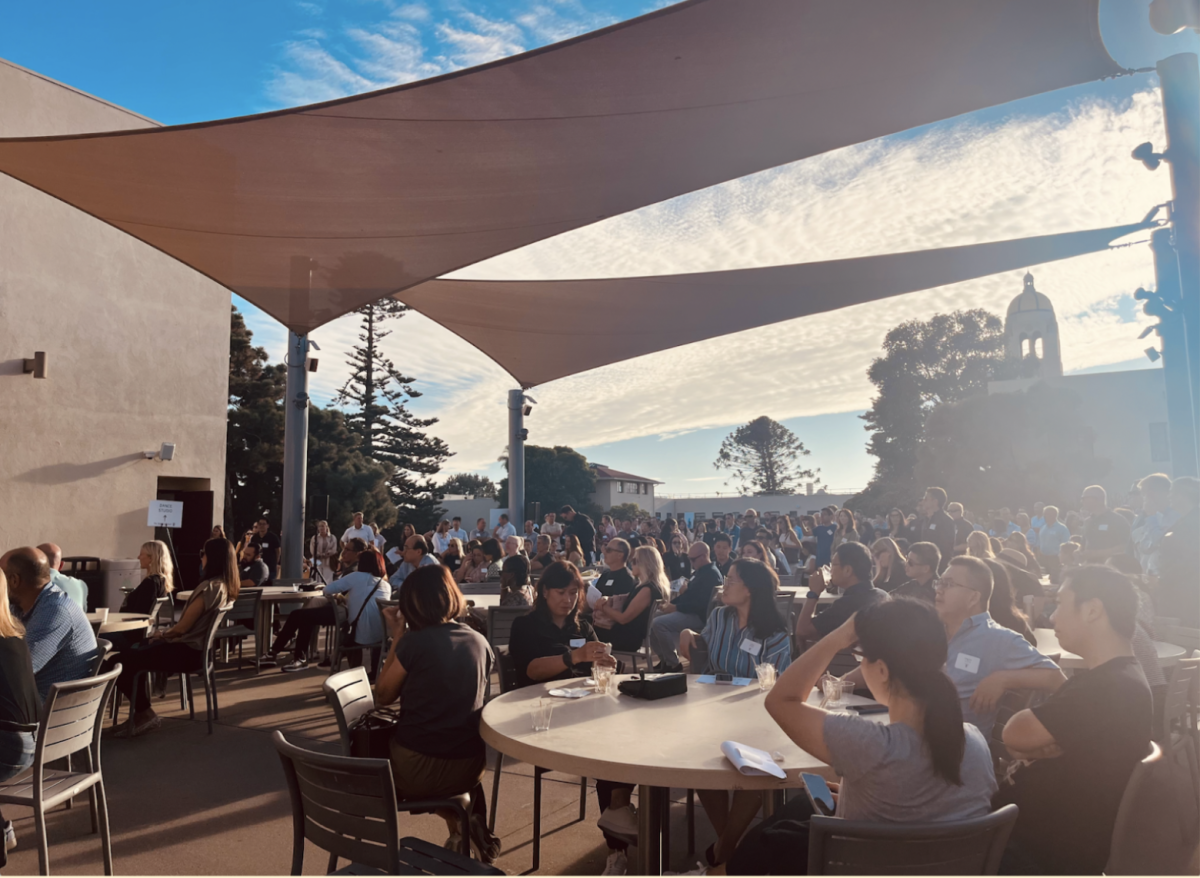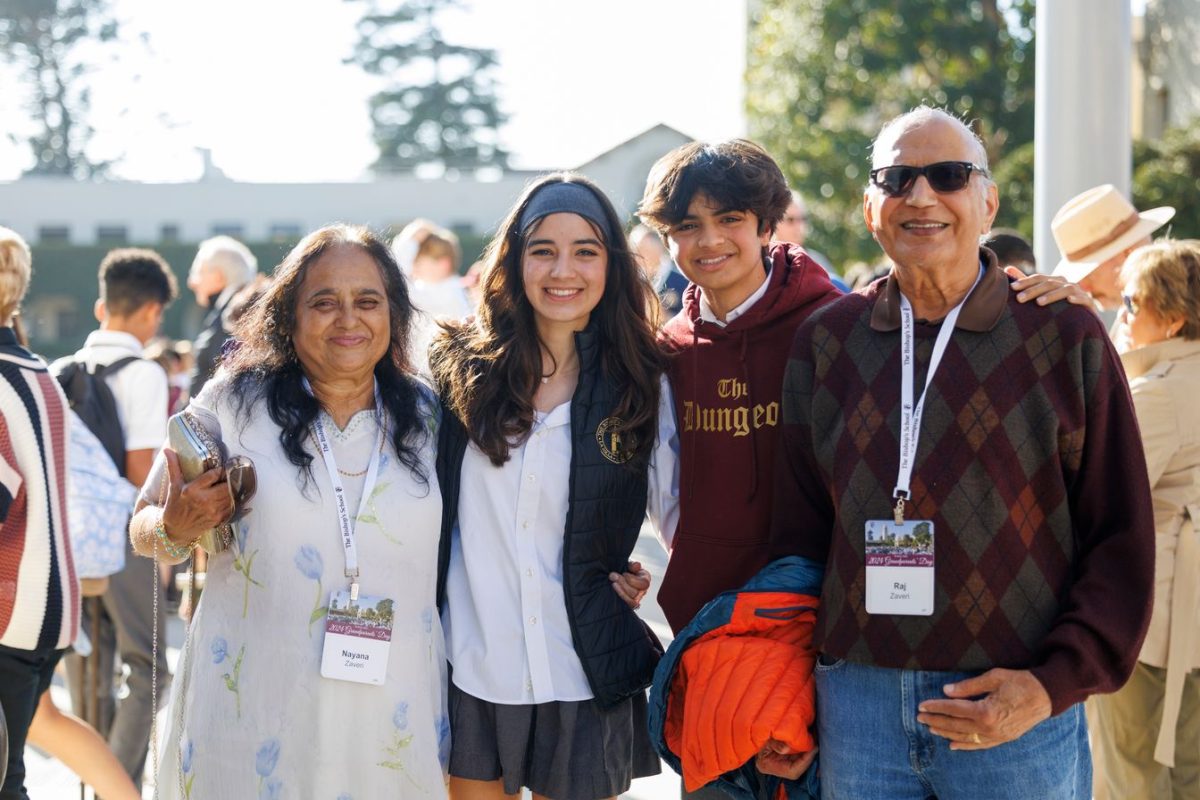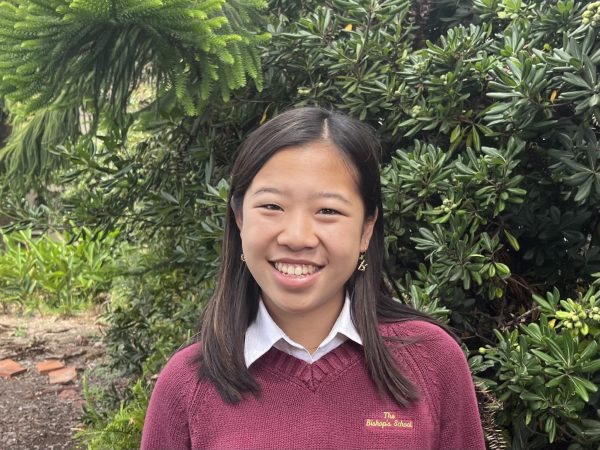“When evil darkens our world, give us light. When ideals fade, renew our vision. When we lose our way, be our Guide. That we may find peace in Your presence, and purpose is doing your will,” opened the Reverend Nicole Simopolous-Pigato, quoting a prayer by Rabbi John D. Rayner.
On April 24, 2024, Bishops’ held its second guided Pesach (Passover) Seder, a night filled with laughter and good eats, but more importantly, strong community and understanding. This Pesach was not like the ones in the past — this one was in the midst of the Israel-Gaza War. Three Jewish members of our community put this Passover into perspective through their speeches.
At its core, “the annual Passover Seder is the retelling of the story of the Israelites journey from slavery in Egypt to freedom in Eretz Israel, the land of Israel,” Eliana Leff (‘26) explained. “During the last several decades, American Jews have been blessed with enjoying a time of peace and prosperity in this country,” she continued. But for the past seven months, this feeling of peace and prosperity has been far more difficult to grasp onto. The growing rise of antisemitism and increasing tensions on college campuses across the nation are evident.
Eliana, a student facilitator of the Jewish Student Alliance (JSA), gave the first speech, sharing a feeling she had on the first night of Pesach: “I looked around the table at everyone’s faces, including my parents, my younger sister, my grandparents, aunts, uncles, cousins, and then I thought of my older sister who is currently in college in NYC, living amidst dangerous protests.” She continued, “Then I thought of the families in Israel who will not ever be able to sit at a table with their whole family because they may have lost one or more loved ones in the last few months.”
“This Passover, many of us [Jewish families] set an empty seat at our Seder table to pay respect to our brothers and sisters who are currently being held hostage,” Eliana said. “Sadly we cannot speak about freedom this year without feeling a tremendous sense of concern for the current safety of our people.”
Senior Raphael Delgado gave the next speech, bringing the attendees back to his childhood, when he heard the Pesach story for the first time. At first, he was eager to celebrate the “liberation of Jewish slaves and commemorate the suffering they endured under their cruel Egyptian masters,” he reflected. But upon giving the story a closer read, a critical question began to surface in his mind. “What about the Egyptians? I wasn’t thinking of Pharaoh or the abusive slave masters, but about the many innocent Egyptian people who suffered from God’s plagues.”
In the Pesach story, God tells Moses about the plagues he is seeking to place on the Egyptians. Raphael explained, “God says, ‘I will harden Pharaoh’s heart, [in order to] increase My signs and wonders in the land of Egypt,’” and His first plagues were enough to free the Israelities. But after the first plague, God casts nine more. “God compels Pharoah to keep the Israelites enslaved so that God can cast more plagues in a grandiose display of glory and power, resulting in the deaths of many innocent Egyptians and the prolonged enslavement of the Israelites,” Raphael explained.
Several times in the Book of Exodus, God ordered Moses to speak to Pharaoh or the Israelites, but Moses protests, claiming that he is “tongue-tied, unsure of what to say, and [is] afraid of saying it,” Raphael summarized. “But I would argue that Moses’s speech impediment has two interpretations: he is both afraid of being the authority figure to lead the Israelites out of bondage and afraid to question God’s plans,” he said.
“By remaining tongue-tied and failing to advocate for innocent Egyptians, Moses condemns himself to live with the blood of the Egyptians on his hands, never knowing how many thousands of lives he could have saved if only he had been braver,” Raphael added. “So, as we celebrate Pesach this year, let’s reflect on the moments when we might feel tongue-tied — when it’s easier to blend in with the crowd or to just stay silent than it is to say the right thing. We are a freed people — but because we are free, we have a responsibility to speak out on behalf of all God’s children who might still wear their shackles,” he concluded.
The final speech was by Religion, Genocide, and the Holocaust Teacher Mr. Matthew Valji, who also serves as the faculty advisor for JSA. Mr. Valji gave a speech at the last Seder in 2022, where he spoke about how Passover and the nightmare of the Holocaust compels Jews to stand with the Ukraine people. But this year, “we sit here reeling from our own dual tragedy, one of suffering and one of rejection,” Mr. Valji said.
“Our hearts break for our brothers and sisters in Israel who were killed, wounded, and captured on October 7th with many civilians still in the hands of Hamas. In our small, global community of Jews, few of us are more than a couple personal connections away from the victims,” he said. And in the days that followed, and the sheer scale and brutality of the attack became more clear, Jews yearned for the type of public solidarity directly following the September 11 attacks and the Russian invasion of Ukraine. But they didn’t get any of that — instead, Mr. Valji explained, “for six excruciating months we have faced a tsunami of antisemitism, sadistic murder celebrated, sexual assault denied, a modern-day pogrom justified.”
It’s hard to know how to make sense of this tsunami — and Mr. Valji didn’t claim to have the answers to rid the Jewish community of their anxieties. Instead, he brought everyone’s attention to the plates on the tables in front of them — Seder plates, holding several different ingredients. Each item holds a different story, and “the symbols from our long history can not only help us come to terms with the past but, crucially, help us make meaning in the present,” Mr. Valji said.
At four different parts of the service, Jews drink four cups of wine (or grape juice, in our case), to acknowledge the redemption mentioned four times in the Book of Exodus. But “let us remember not to be indifferent to the suffering of Palestinians today,” Mr. Valji added. We must “acknowledge that Islamophobia and systematic racism are vile cousins of antisemitism rather than its opposites,” he concluded.
The Seder service concluded with, “L’Shana Haba’ah B’Yerushalayim,” translating to “Next year in Jerusalem.”
It is with hopeful hearts that we wish for the end of the brutal Israel-Gaza conflict and also say, “Next year in peace.”


